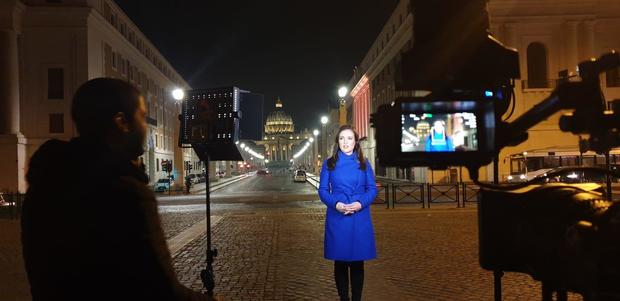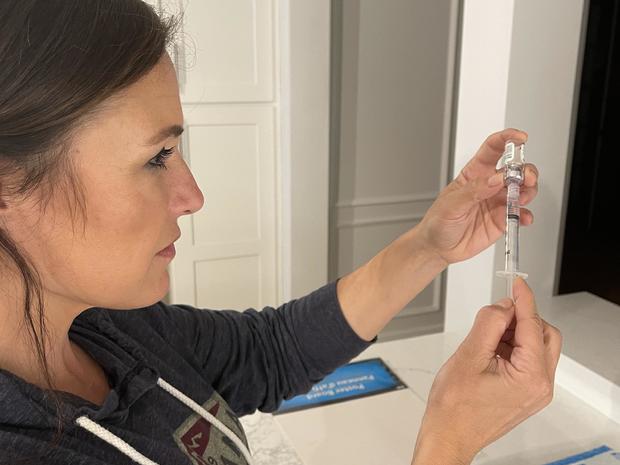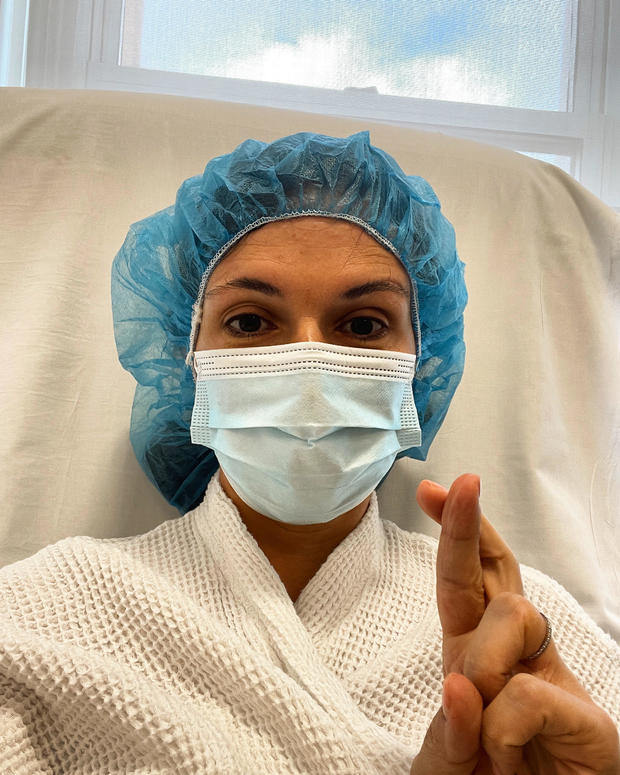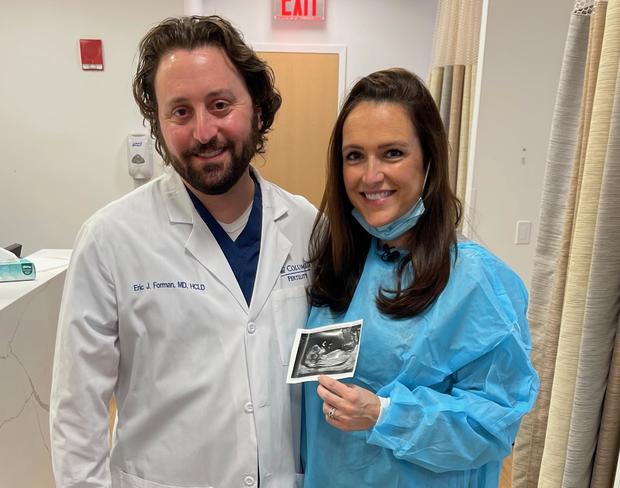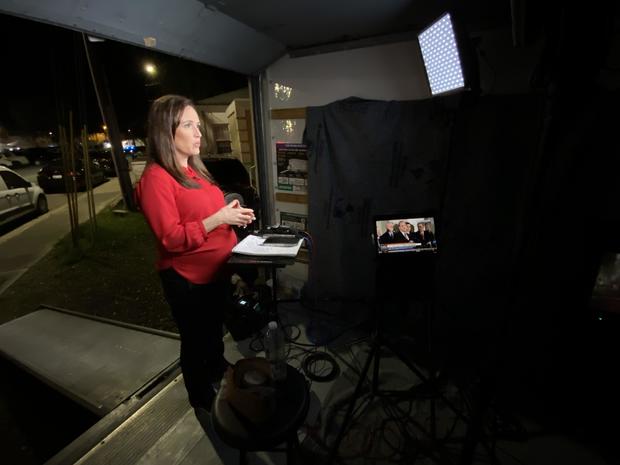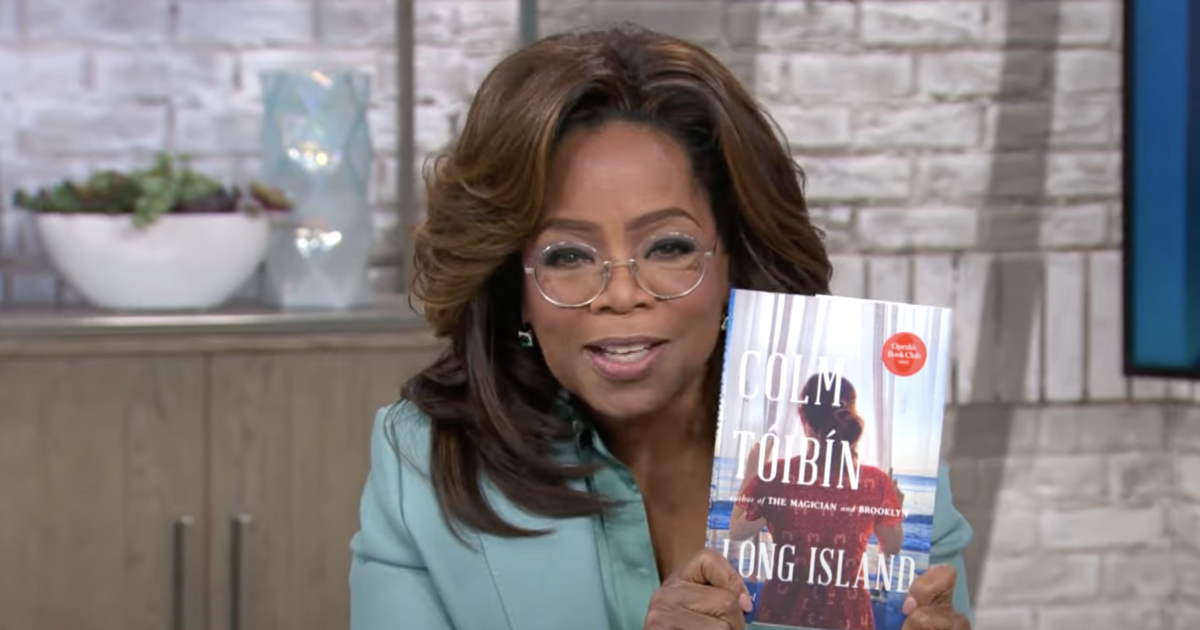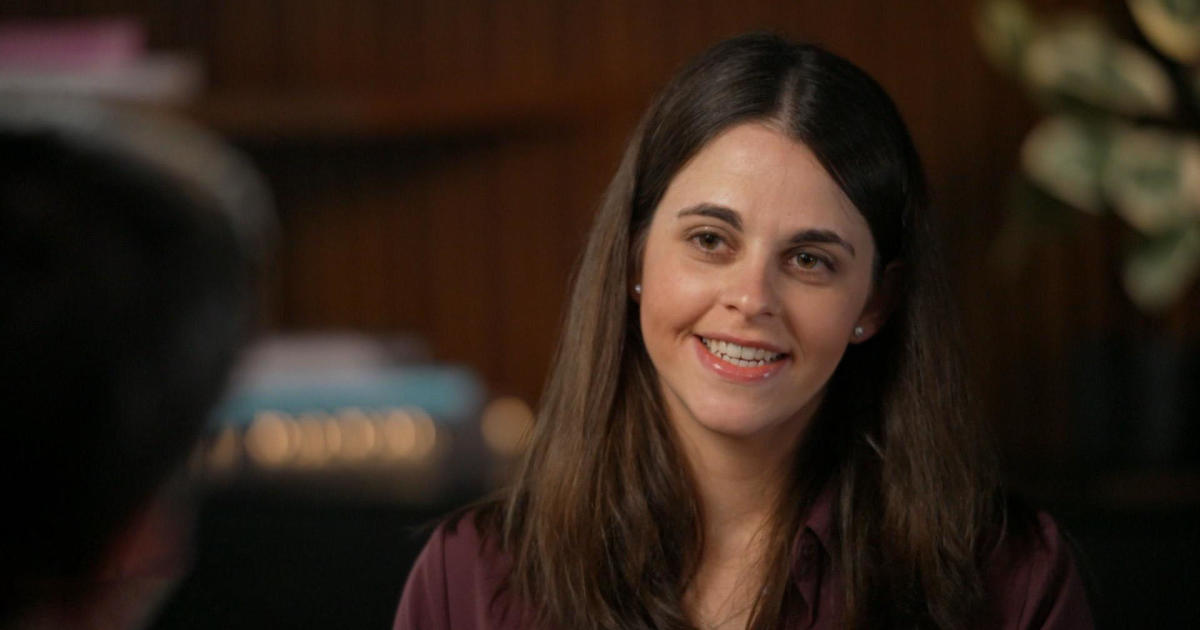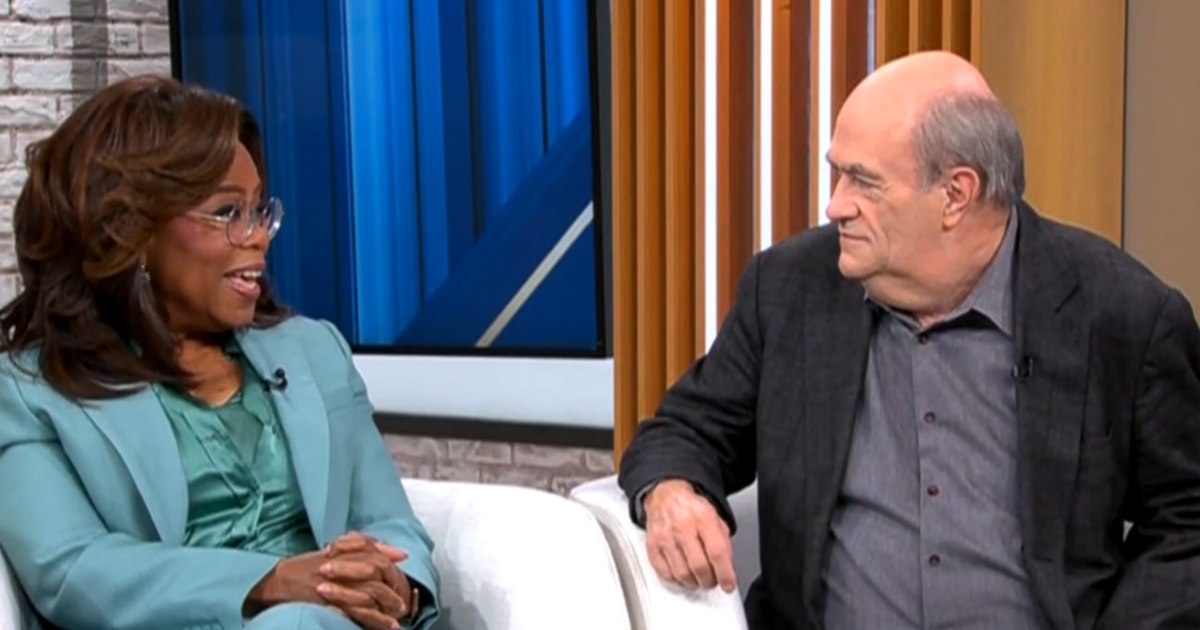I knew little about IVF and infertility. Then it became my life. Here's my story.
In-vitro fertilization, or IVF, had never crossed my mind until a year ago. IVF, or infertility at all, was not a topic that had really come up with my friends or family. I had never done a television story about it, and it was not a topic anyone really spoke about openly.
I am now embarrassed to admit how little I knew about reproductive health, fertility and infertility — until it became my life.
My husband, Dean Simpson, and I married in 2016 when we were both 36 years old. A few months later, I switched from working behind the camera as a producer to reporting on-air as a correspondent. Because I was, in some ways, starting a new career, I wanted to wait to start a family.
It is a decision I later regretted, because I learned the time I had given up had been critical.
I now know that, after age 42, fertility for women essentially falls off a cliff.
We had started trying to have a child right before I turned 39, and we got pregnant naturally and quickly. Eleven weeks later, I miscarried.
Later that year, we got pregnant again, also naturally and quickly. I had my son, Beau, at age 40. That was in 2020, in the throes of the COVID-19 pandemic. Beau is now 2 years old and joy personified.
We had always hoped to have two children — possibly even three — and, naively, never really worried about facing infertility. After Beau was born, more aware of my age, we decided to try again about a year later. I got pregnant, again naturally and quickly, for a third time, at age 41, but miscarried at nine weeks.
I remember doing a "CBS Evening News" live shot minutes after realizing I was miscarrying. I had started bleeding just before I had to get in front of the camera. I cried privately, then kept telling myself to just get through the live shot, to stay composed and focused. Live television does not wait. I got through it, then called my husband and OBGYN. Miscarriage is another time we suffer in silence – and often feel shame.
My second miscarriage was particularly devastating because I had a better understanding of the loss, since I had a child now.
Dean and I desperately wanted to give our son a sibling, especially because we are older parents and our families both live a distance away.
A year ago, in March of 2022, a few months after my second miscarriage, my OBGYN recommended IVF. My first reaction was, "No problem. We will do a round of IVF and have a baby." That is how IVF is often advertised, and the few stories I had heard about it all ended in success.
When I dove into research and educated myself, reality began to sink in. My biological clock was ticking, and it was ticking fast.
There was also one big consideration: IVF is often very expensive. For some, insurance can help cover the costs. For others, it can cost tens of thousands of dollars.
Luckily, I learned I have some fertility insurance through my health benefits at CBS News. I found Dr. Eric Forman at Columbia Fertility Center in New York City and was able to see him last April.
The first sobering moment in our IVF journey came during an initial appointment with Dr. Forman. He had run some tests and told me I had a low ovarian reserve, which meant I had a lower-than-average egg count.
On top of that, I was midway through 42 and, Dr. Forman said statistically, only about 20% of the eggs I did have were likely to be viable — meaning they might be chromosomally normal, which would make them more likely to result in a pregnancy. Like many miscarriages, both of mine were due to chromosomal abnormalities, which increase as eggs age.
Dr. Forman said, "It will be difficult, but there is some hope." It was like someone punched me in the chest. This was not going to be easy.
Hope, I thought.
In May 2022, I mixed my first IVF shots. That alone was daunting.
My husband injected the shots, and that was our routine for about two weeks. I needed three shots every night in the same 15-minute window, which often meant rushing home from reporting on the "CBS Evening News." The shots did not bother me too much, though, so I was grateful.
Let me explain the IVF process. There are roughly two weeks of hormone shots, which stimulate the follicles in a woman's ovaries to grow. Typically in a menstrual cycle, one follicle ovulates one egg in about a month. The goal with IVF is to get more follicles to produce eggs simultaneously, so multiple eggs can be retrieved at once and fertilized in a lab.
During the two weeks that I took the shots, I drove two hours round-trip to Columbia Fertility Center about every other day for bloodwork and ultrasounds, where my follicles' size and growth were checked. When Dr. Forman felt as many follicles as possible were at a size where they might produce an egg, we did an egg retrieval, which is a surgical procedure to remove the eggs from ovaries.
After retrieval, there are several steps before pregnancy is attempted. With each stage, there is usually a drop in the number of eggs that could result in pregnancy.
As Dr. Forman told me, "It's a numbers game."
Typically, not all eggs that are retrieved are mature. Those that are can be fertilized in a lab with sperm, but not all of the eggs typically fertilize successfully. For the eggs that do fertilize, there is a waiting period of about a week to see how many grow into blastocysts, which is the very beginning of an embryo.
Some in the IVF process choose to then have the embryos genetically tested before going to the next step of transfer to a uterus.
The whole process is complicated and delicate. And, every body is different.
At age 42, there was only about a 9% chance the first IVF cycle would work, according to the American Society for Reproductive Medicine, a nonprofit organization.
I had my first egg retrieval last May. Five eggs were retrieved, and all five were mature. That meant the clinic could try to fertilize all of them with my husband's sperm. Three were fertilized during that process.
We waited about a week to learn how many grew into blastocysts.
Dr. Forman called me to tell me none had made it. Dean and I were shocked and devastated, but also ready to dive into another round of IVF right away.
Round two resulted in four eggs. Two made it to embryos.
At that point, we opted to do pre-genetic testing because of my age. Dr. Forman said each embryo had about a 20% chance of being viable.
Neither one was. I felt broken. Now my strength was being tested.
At that point, I decided I had to share my story. As difficult as it would be, I knew I had to talk about how IVF often does not work. In fact, statistically, it is unsuccessful more often than it is successful, according to Dr. Forman.
I suggested to Shawna Thomas, the executive producer of "CBS Mornings," that we do a fertility series discussing family planning, egg freezing, IVF and menopause. I told her I would share my story, regardless of the outcome. She did not hesitate and said, "Let's do it. It's so important."
The third round of IVF was going to max out my insurance, but we forged ahead. I had seven eggs retrieved, which led to one embryo.
We did genetic testing on the embryo, and miraculously, it was viable! We were thrilled.
We decided to try a fourth round a month later, because we hoped to have a second healthy embryo. It failed, too.
That was the end for us financially.
The next step was an embryo transfer, when the embryo is placed in a uterus. Because our embryo had been genetically tested, there was a 60% chance the transfer would be successful, according to the National Institutes of Health.
We decided to transfer our one viable embryo in November. Then there was an agonizing 10-day wait before a pregnancy test could be done.
I will never forget the phone call. All I remember is Dr. Forman saying, "Good news!" I cried hysterically with my husband, standing in our kitchen, with a giddy Dr. Forman on the phone.
We were in happy disbelief.
And, it's a girl. A son and now a daughter. How lucky could we be that it worked?
I asked Dr. Forman that question. He said, given my age, on a lucky scale of one to 10, we were an eight. Very lucky.
I am 22 weeks pregnant now, and I still cannot believe it.
Throughout my IVF process, I often felt guilt over feeling such despair because we already had a child. I often thought about people trying desperately for years to have their first child, sometimes without ever having success. I thought about the fact that my story was only a fraction of what many people go through.
I also thought about all the people who do not have fertility insurance or the finances to try it at all. The privilege that I have is not lost on me.
We are incredibly lucky. Lucky beyond belief.
Dean and I will not truly breathe a sigh of relief until our daughter is in our arms. Because of the journey we've been through, we are acutely aware that anything can go wrong at any point.
But we learned during this process, we are not alone. As I began to talk about my IVF journey with people I met, friends of friends and colleagues, people started sharing their own silent suffering. Suddenly, it was like people were whispering, "Me too!"
That is why I want to share my story. For too long, so many of us have kept our fertility struggles a secret, and we have endured the pain alone. It does not need to be so isolating, and there is no shame in failure. That is often how I felt – after miscarriages, after failed rounds — a failure. But it's all out of our hands. Our bodies are what they are, and we can only hope they will give us what we hope to have. Measured hope is what kept me going.
